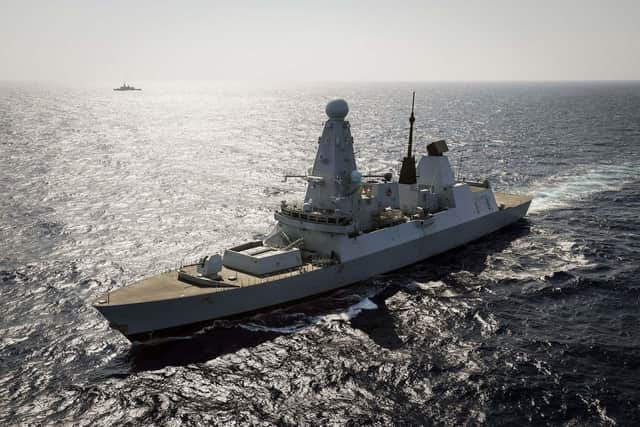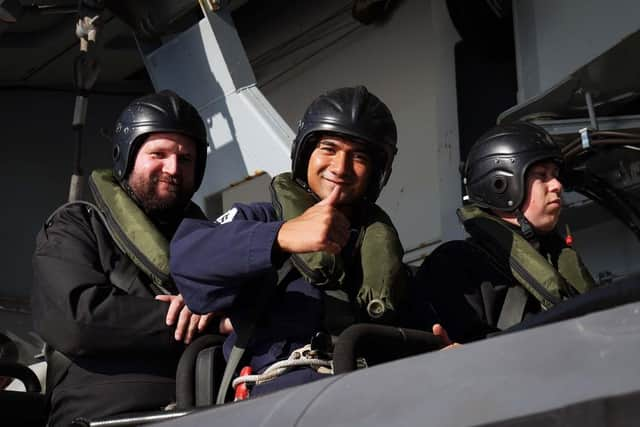Royal Navy: Task group lead by Portsmouth warship HMS Duncan fully forms as intense training begins
and live on Freeview channel 276
HMS Duncan has joined forces with seven other vessels as part of the Standing Maritime Group 2. The force, which is based in the Mediterranean and contains seven vessels from different nations, spent a week together as part an intensive and comprehensive training package.
The Type 45 destroyer and her staff, led by Commodore Paul Stroude, took charge of the task group from the US Navy in July. Commodore Stroude said: “Each nation brings its own capabilities and unique strengths to the group.


Advertisement
Hide AdAdvertisement
Hide Ad"The opportunity to train together so as to be able to understand and maximise these attributes, while reinforcing our common tactics and procedures, is vital to maintaining the ability of these NATO ships to operate together. This in turn is key to our success as a task group.”
The group contains 1,500 personnel from six nations assigned to seven ships – lead by HMS Duncan’s 200-plus strong crew. This includes Spain’s ESPS Méndez Núñez, ITS Margottini from Italy, FS Surcouf from France, TCG Yavuz from Turkey, and two support ships: Germany’s FGS Frankfurt Am Main and the Spanish ESPS Patiño.
It was previously under American leadership and experimented with dispersing its vessels throughout the Middle Sea to secure its waters and crucial shipping lanes – more than four times the size of the North Sea. It is regular practice for the Royal Navy to operate east of Suez alongside the US navies with the Combined Maritime Forces.
SEE ALSO: Task group eliminates minefield


An estimated 2½ million square miles of ocean is patrolled by the warships. The seven vessels of Standing Maritime Group 2 have now been assigned to Nato’s premier Mediterranean naval force after working independently.
Advertisement
Hide AdAdvertisement
Hide AdThroughout the training regime, crews were challenged to complete increasingly-complex integration scenarios. This included tactical communications and manoeuvring, live gunnery, air defence, surface warfare and replenishment-at-sea.
The new inclusion of ESPS Patiño has significantly increased the group’s ability to remain at sea for sustained periods – with more fuel and supplies being available to the group. Five helicopters as part of the group racked up dozens of hours of flight time during the training – to extend the range they can monitor and ready air and flight deck crews for combined operations.